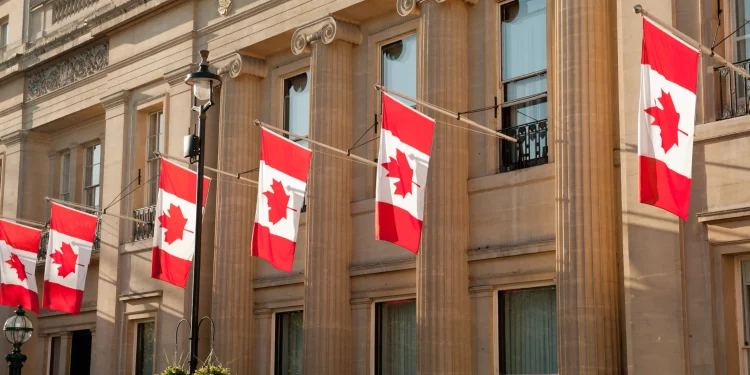Canada’s economy hasn’t budged under the weight of high borrowing costs till now. The economy’s surprisingly strong growth, however, has more economists predicting that the central bank would increase the interest rates soon. According to Bloomberg surveys, the Canadian economy is proving to be unaffected by the higher interest rates. This is also the reason why experts expect the Bank of Canada to increase its benchmark rate which is at 4.5% between anytime now and September. Governor Tiff Macklem’s next move is expected to be a rate cut, according to analysts’ estimates.
A return to the rate hike
Bank of Canada was the first major bank to pause the interest rate hikes in January, and a return raises questions about how high the bank can take borrowing costs without creating much ruckus for the economy. Between March last year and January 2023, the central bank raised the interest rates eight times reaching 4.50%, which was the highest rate in 15 years. The Bank of Canada announced a conditional rate pause in January and since then the economic data has continued to surprise the upside. Underlying inflation is proving stubborn, the labor market is showing few signs of strain, and housing activity has started to rebound, with sales and prices rising in the country’s major cities.
This also marked the fastest tightening cycle in the history of Canada’s central bank. The increase in the price of money failed to cool the economy with GDP in the first quarter rising 3.1% compared to the 2.3% estimates by the Bank of Canada. Inflation rates went up to 8.1% for the first time in ten months as the central bank’s target was 2%. According to experts, the recent recovery in Canada’s housing market is also influencing prices.
Going against the predictions
The general view this year was the country’s indebted households would cut back spending as higher rates were absorbed which resulted in the slowdown of the economy before other nations that were not exposed to increased mortgage debt and home prices. However, the trends are currently shifting and the country’s economy grew at a 3.1% yearly pace during the first quarter, which is again stronger than estimated.
Consumer spending has been steady and created an understanding of how tight the monetary policies must be to bring inflation under control. Chief economist at Deloitte Canada, Dawn Desjardins, stated that happenings in the economy are unexpected. The economy is improving and becoming more resilient mostly because of the increase in savings during the time of the pandemic.
Economists at Toronto-Dominion Bank and Bank of Nova Scotia say that the central bank plans on rising the borrowing cost at its meeting on Wednesday. According to the respondents of the Bloomberg survey, most of them believe that the regulators have given ample time and notice to start increasing the rates again.
How is Canada’s economy so resilient?
There’s no one particular reason or it would be hard to pinpoint one reason for the Canadian economy’s resilience in the face of interest rate hikes. According to economists, Prime Minister Justin Trudeau’s spending programs and boosting targets for immigration have bestowed a need for higher interest rates this cycle.
Because of the same reason the economy saw an increase in borrowing costs by 425 basis points in less than a year by the central bank.
Finance Minister Chrystia Freeland defended the fiscal plan and called it “responsible” and noted that Canada has the lowest debt-to-output ratio among the G7 countries. Bloomberg findings show that the rate cuts won’t start until the first quarter of next year and many find inflation returning to the 2% target in 2024.


















